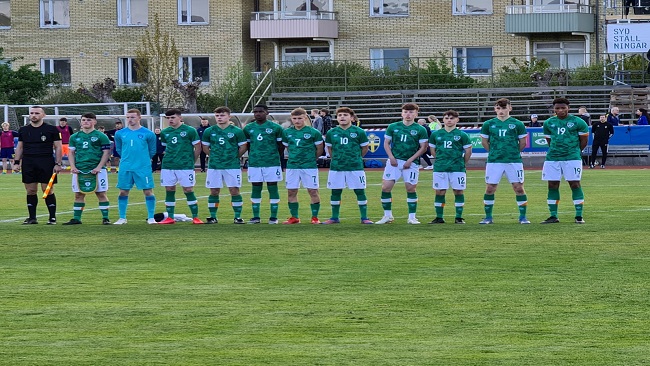3, October 2022
Stadium disaster tarnishes Indonesia’s sporting ambitions 0
Indonesia’s hopes of hosting world sports events in future will depend on the credibility of its investigation into the weekend’s football stadium disaster and safety reforms, analysts have warned.
The tragedy on Saturday in Malang left 125 people dead and more than 300 injured after police fired tear gas in a packed stadium to quell a pitch invasion by fans, triggering a stampede.
It was one of the deadliest disasters in the history of football.
Analysts said that while there have been similar tragedies in other countries — although rarely on such a scale — it will undoubtedly affect Indonesia’s reputation when it comes to hosting big international competitions.
It could not have come at a worse time — Indonesia has bid to replace China as hosts for next year’s Asian Cup football and a decision is due in two weeks.
The archipelago country of about 270 million people will also host the FIFA U-20 World Cup in May. There have been calls online for Indonesia to be stripped of that right.
Indonesia, which defied warnings about poor preparations to stage the Asian Games in 2018, has also expressed an interest in hosting an Olympics for the first time in 2036.
“It certainly tarnishes the reputation of the country and tarnishes the reputation of football there. They can’t escape that,” Los Angeles-based crowd management expert Paul Wertheimer told AFP
“But it is what they do now that will determine whether the reputation sticks or not — whether they can learn from this tragedy and produce standards of care that will impress the world,” said Wertheimer, who heads the consultancy Crowd Management Strategies.
“The first thing I thought was: why was tear gas being used?” he added, also highlighting overcrowding and failure in crowd management as among the possible missteps.
FIFA, football’s world governing body, prohibits the use of crowd control gas by police or stewards at pitch-side.
“I think everything has to be reassessed,” Wertheimer said, adding there also needs to be retraining of personnel on managing crowds as well as “an educational component that focuses on the fans and the public, what their roles and responsibilities are for the safety of themselves and everyone else”.
Indonesia has formed a task force to investigate the tragic events at Kanjuruhan stadium, where 32 children were among the dead.
‘Huge wake-up call’
Mustafa Izzuddin, a visiting professor of international relations at the Islamic University of Indonesia, said global scrutiny will not just be on football.
It will be on Indonesia’s ability as a whole to host future sporting events and even on its ambitions to become a key player in world diplomacy.
The Southeast Asian nation has struggled to shed a reputation for generally lax safety standards — its airlines were previously banned in the West because of safety issues.
“The stampede, tragic as it may be, is a huge wake-up call for Indonesia to look at all these security measures for all the sporting events that they are going to be hosting from this point forward,” Izzuddin told AFP.
“It’s a critical time for Indonesia to ensure that any investigation is credible and that punishments are meted out,” he added.
“More importantly, Indonesia must provide the necessary assurance to the wider football community that it is serious about curbing football violence.”
Having watched football matches in Indonesia, Izzuddin noted that violence often happens in places far from urban centres, making it necessary for provincial officials to play a “pivotal role” in ensuring safety.
Wertheimer said that Indonesia can salvage its reputation at home and abroad with the right response.
“Will they respond with a thorough investigation that leads to substantive changes that protects the public going forward?” he asked.
“If they do that, over time, Indonesia will reestablish a positive reputation in the international community.
“And it probably will regain the confidence of the Indonesian public as well.”
Source: AFP



























7, October 2022
Football: One dead in unrest at Argentina match 0
One person died Thursday following violent clashes that started outside a soccer match on the outskirts of Buenos Aires before spilling into the stadium and onto the pitch, authorities said.
Police fired rubber bullets and tear gas as they attempted to stop fans attending the match between top-flight teams Boca Juniors and Gimnasia y Esgrima from pushing into the already crowded venue.
The unrest outside the Carmelo Zerillo stadium in La Plata, about 50 kilometers (31 miles) south of Argentina’s capital, continued inside, where shocked spectators were seen squeezing through fencing to escape the violence and get onto the field.
“There were about 10,000 people around the stadium trying to get in, some with tickets, some without. Everyone could see that the stadium was very full,” said Eduardo Aparicio, head of a government agency tasked with preventing violence in sports.
“All this is being investigated,” including “the actions of the police,” he added.
Authorities at San Martin hospital in La Plata confirmed the death of 57-year-old Cesar Regueiro from cardiac arrest as he was being transferred from the stadium to a hospital.
A cameraman for sports channel TyC was injured by rubber bullets while dozens of spectators were suffering from the effects of tear gas and had been taken to hospitals, according to local media.
‘The air became unbreathable’
The game was suspended after nine minutes due to a lack of security, referee Hernan Mastrangelo said.
“It affected all of us on the field,” he added. “The air became unbreathable. The situation got out of control and there were no security guarantees.”
Explosions were heard inside the stadium and smoke from the fumes quickly reached the pitch.
The players, the referee and technical staff members were forced to evacuate the field.
At the same time, fans, including children being led or carried by adults, rushed from the stands and onto the pitch, where people were seen sitting or lying down apparently recovering from tear gas exposure.
“The first thing I saw was that people had started to flee the stalls and I began to feel the effects of the gas. I thought about my family and I started to worry,” Nicolas Contin, a Gimnasia player, said from the locker room where he had carried his young son.
“I’m angry about everything that happened.”
The match came at a critical point in Argentina’s Primera Division, with Gimnasia trying to stay in the title race and Boca looking to move into first place.
“What was going to be a party ends in this. It hurts us all what happened, it is tremendous and we regret it,” Boca Juniors manager Hugo Ibarra told reporters.
Clashes inside and outside Argentina’s stadiums have resulted in more than 300 deaths since soccer became professional in the 1930s, with two-thirds of the deaths occurring after the 1990s, according to a local NGO.
The violence in La Plata comes just five days after one of the deadliest disasters in soccer history in which 131 people were killed in a stadium crush in Indonesia.
The incident in the city of Malang also descended into tragedy after police fired tear gas into packed stands.
Source: AFP